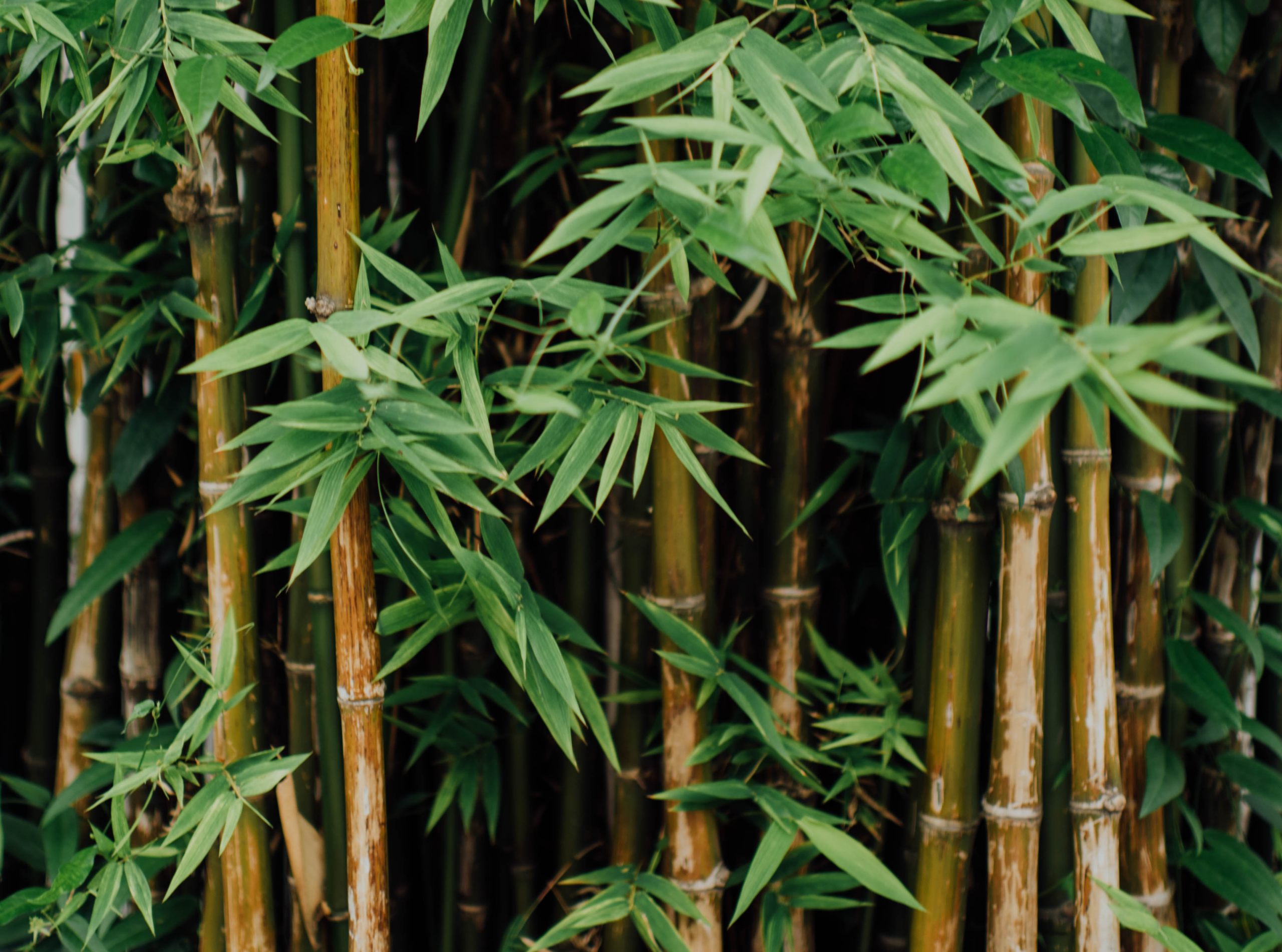The versatility and sustainability of bamboo are well known. It is a natural resource that has been used over the course of the millennia with astounding success. From roadways to medicinal practice to fashion, bamboo is a one-of-a-kind grass that keeps on giving. As we look for new ways to invest in the holistic health of ourselves, our homes, and our planet, we are seeing the relationship with bamboo expand. There are, therefore, many reasons to invest in it for our collective future. Below are ten environmentally imperative reasons to get involved with bamboo immediately.
1. Sustainable Resource
Due to the fast-growing nature of bamboo, it can easily and quickly be harvested within a 1-5 year time span, whereas hardwoods take much, much longer. Ash and sycamore can take 50-70 years to mature; beech, 80-100 years, and the imposing oak can take more than 100 years to fully develop. According to the United Nations Food and Agriculture Organization (FAO), an estimated 18 million acres (7.3 million hectares) of forest are lost each year. With these appalling numbers, bamboo’s strength and ability to substitute for hardwood timber offers us an opportunity to invest in an agribusiness product that works.
2. Phenomenal Rate of Growth
Certain species of bamboo can grow 910mm (36in) within a 24-hour period, which is a rate of almost 40mm (1.6in) an hour (a growth around 1mm every 90 seconds, or 1 inch every 40 minutes). Giant bamboos are the largest members of the grass family. No plant on the planet features a faster growth rate. When it is harvested, it will grow a new shoot from its extensive root system with no need for additional planting or cultivation. With its unique ability to replenish itself, bamboo is an unmatched “green” resource.
3. No Chemicals Needed
Unlike how most agriculture crops have thrived, bamboo does not at all require chemicals to grow abundantly. Though fertilizer and loamy soil will aid in its bounty, bamboo groves can be fertilized with organic fertilizers that are much less concentrated. These fertilizers are applied liberally for the appropriate amount of nitrogen to reach the bamboo root systems, and this improves the long term health of the soil and the bamboo. Unlike cotton, which is one of the most intensely sprayed crops in the world and rapidly depletes the nutrients in the soil, bamboo appropriates the nitrogen and does not add chemicals to the environment.
4. Soil Protector
Bamboo is effective for soil conservation and rehabilitation of degraded lands. The extensive and continually growing underground horizontal stem, along with the complex roots system, effectively binds topsoil and prevents sheet and gully erosion. Growing bamboo is an effective tool to mitigate soil erosion. It also improves soil qualities and hydrological functions. Becoming an advocate for soil protection is key to preventing erosion that clogs rivers and streams. This can also affect the lives of the people and animals reliant on the soil and water conditions, and the planet as a whole. Bamboo provides a stable root structure that prevents erosion and helps to retain nutrients for the next growth cycle.
5. Adaptable to Conditions
Where there is drought and other crops are caused to fail, bamboo flourishes. And since bamboo roots are left in place after harvesting, bamboo helps to preserve the soil’s vital and precious moisture. From low wetlands to higher elevations in the mountains, bamboo prospers in variable climates, making it a smart investment with all conditions.
6. Reduces Greenhouse Effect
As we all work towards a carbon-negative future, meaning as a global society, we continue to find solutions that actually reduce the amount of carbon dioxide in the air, investing in bamboo is a massive move in the RIGHT direction. Carbon bastions, like tropical forests or bamboo plantations, can contain greenhouse gases in the plants themselves, but also in healthy, well-maintained soil that doesn’t leach away into rivers and streams. The imperfect solution of reforestation and afforestation often creates land that is sadly not viable for sustainable livelihood. Trees felled for sale as timber need to be replanted, often at great cost and loss of biodiversity, and take a long time to grow to full size. Bamboo, on the other hand, grows in a way that protects the soil and helps to keep global warming at bay.
7. The Multi-Purpose Plant
Bamboo is highly functional and can substitute wood in most situations, as it does not warp in adverse weather conditions. Paper, flooring, furniture, charcoal, building materials, and more can be made from bamboo. Bamboo has been used for centuries as a structural material and in diverse engineering applications, food and medicinal purposes, especially in Asia. As a natural fibre composite, bamboo has the potential for many developments in the industrial landscape, making it an agribusiness product on the move and worth investing in. The time is now to bring together the world of the plant with its greater engineering and environmental purposes.
8. Economic Evolution
Sustainable agribusinesses and practices can become the norm, especially in countries where high levels of unemployment can lead to civil unrest. Sustainable farming can improve the conditions for social and economic systems worldwide. Investing in bamboo forestry and the manufacturing of bamboo goods provides job opportunities in areas that desperately need stability, skills and new (environmentally sound) opportunities.
9. Nominal Waste
Although the environmental impact of producing bamboo is still being measured, current research shows the manufacturing of such durable products such as bamboo flooring, decking, cladding, panels and beams are producing a carbon-neutral footprint, especially when bamboo is cultivated without chemicals.
10. A New World
The environmental, socioeconomic, biological, and cultural advantages of producing bamboo provide an opportunity for communities to come together to create mechanisms for global communication and cooperation that benefits all parties. Partnerships and alliances are being facilitated to further activate and advance progress in the bamboo trade and sustainable cause worldwide.
With the growing need to adjust our consumption practices and lessen our reliance on our depleting natural resources, it’s time to invest in the future of bamboo. A sustainable, greener path to a new way of living; a path lined with respect, conscious intentions and right action towards our planet.


